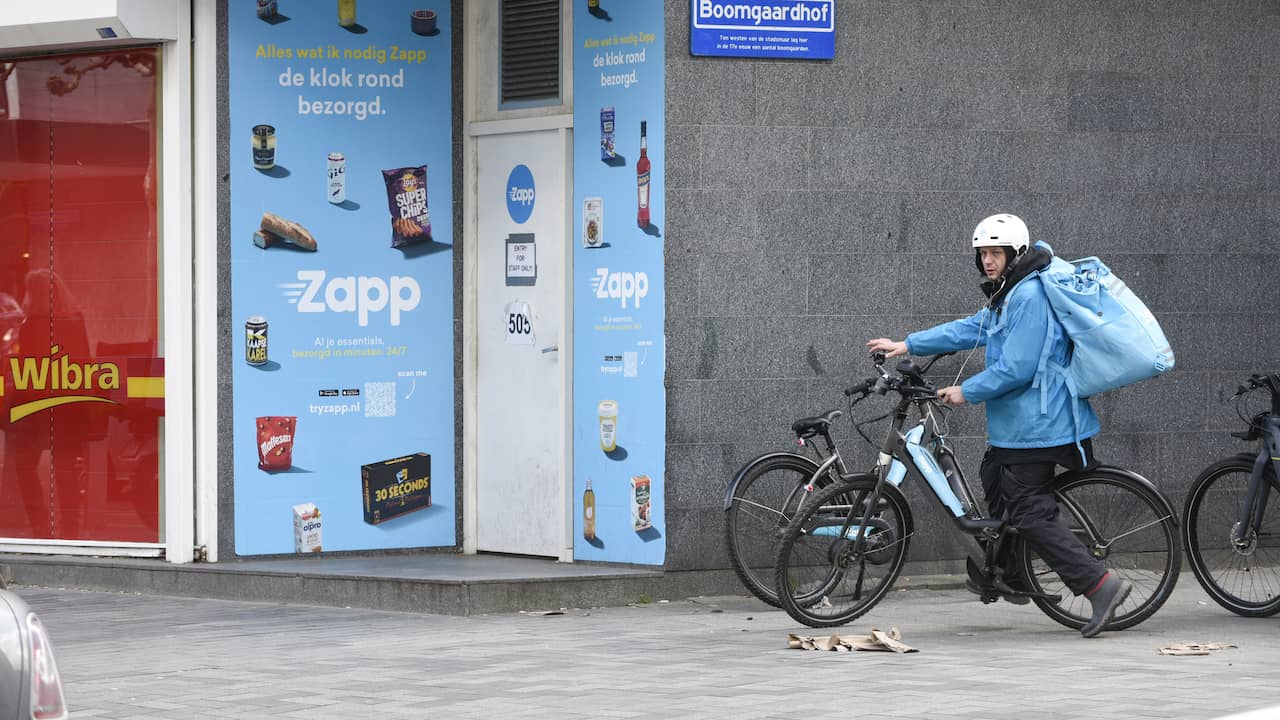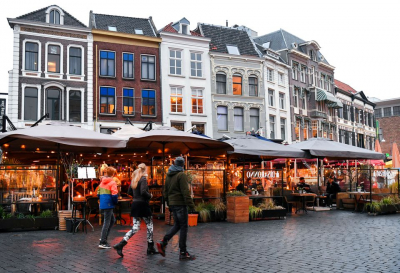Since the corona crisis, the Dutch have increasingly had groceries, meals and meal boxes delivered to their home. These delivery companies jointly recorded a turnover of 3.9 billion euros last year, an increase of no less than 278.6 percent compared to 2019. That includes delivery from regular supermarkets, according to an overview of the FoodService Institute Netherlands (FoodService Instituut Nederland) on Wednesday. FSIN) of five hundred food companies in our country.
“We expect the total delivery market to continue to grow by 5 to 10 percent annually. The total turnover is already at almost 11 percent market share of the total food market. Delivery is now a mature market,” says FSIN director Inga Blokker.
The explosion in the delivery of meals, groceries and meal packages is not only noticeable in the streets, but can also be seen in the top ten fastest growers of the past year. This is led by Uber Eats and Deliveroo, followed shortly by the two delivery services of SPAR and PLUS, meal and meal box deliverer Uitkookt and web super Picnic.
The flash deliverers in particular experienced rapid growth during the corona crisis. Gorillas was the first player in the Netherlands and started in Amsterdam in January last year. Flink and Getir followed soon after and Zapp also arrived in the capital. Together they achieved a turnover of 184.4 million euros last year.
Regular supermarkets are already making extensive use of these fast services. For example, Jumbo has entered into a strategic partnership with Gorillas. In addition, Albert Heijn and Coop recently announced that they will deliver their groceries as quickly as possible via other platforms such as Thuisbezorgd.nl and Deliveroo.
Consumer behavior has changed a lot
According to Blokker, consumer behavior has changed considerably in recent years. “We feel rushed as a society, that’s the main reason for all delivery. People don’t feel like cooking at the last minute or going to the supermarket for their groceries. And during the corona crisis, delivery has only increased because restaurants, for example had no alternative.”
Blokker expects a major takeover in the delivery market in the coming years. “For example, with the flash deliverers, there are one or two left. There is just no room for five players.”
Gorillas and Getir recently announced they would lay off hundreds of people. The flash delivery companies have raised billions from venture capitalists for their rapid roll-out, but are barely making a profit, according to FSIN. Gorillas has already indicated that it will shift its focus from “hyper growth” to “a clear path to profitability”.
–


